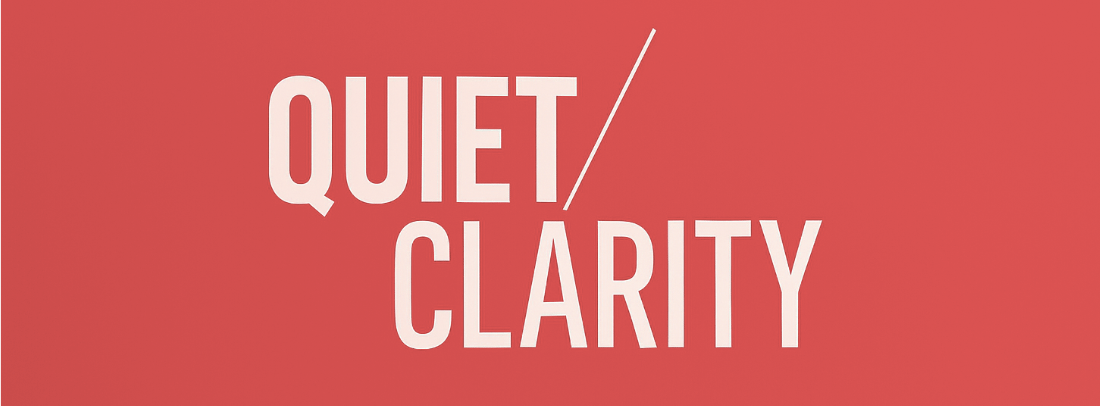
Quiet Clarity is a 2x/week newsletter and podcast for people who want to build a life of presence, depth, and deliberate intention.
We often believe one thing and say another.
We postpone telling people how much they mean to us until it's too late.
We delay our highest calling for "someday," not realizing that day may never come.
Meanwhile, we're addicted to busyness, moving from one thing to the next, still not satisfied.
Travel, entertainment, success, novelty—they're beautiful in moments, but they're all external.
And anything external is never fully yours.
What if the peace you're chasing is waiting in what you've been avoiding?
Where It Showed Up in My Life
I was recently reading "Breakfast with Seneca" when something shifted in me.
For years, I'd been postponing important conversations, thinking I had endless time.
I'd been chasing external achievements while ignoring inner whispers.
Living reactively, not intentionally.
Then I read about the finite nature of life, how there will be a last time for everything.
A last time you tell your mother how much she means to you.
A last time you say I love you.
This hit me hard because I realized I'd been living as if I had forever.
How many important words have I left unsaid, assuming there would always be tomorrow?
What the Wisdom Reveals
Seneca tells a story about a dog tied to a cart rolling downhill.
The cart will move either way—that's fate, that's life, that's the universe unfolding.
If the dog runs with it, he flows.
If he resists, he tumbles and gets dragged.
But here's what most miss: the dog is still tied to the cart.
This isn't about pretending you have total freedom.
It's about choosing how you move with what you cannot change.
Seneca lived this truth personally.
Exiled by one emperor, recalled by another, forced to take his own life by a third.
His external life was at the mercy of forces beyond his control—his cart rolled where it would.
But internally? He remained free.
He wrote his greatest works in exile.
He found peace in poverty after wealth.
He faced death with such calm that he comforted those around him.
How? He understood something profound:
Events happen as they do. We're the ones who assign meaning.
The whole world may think you're successful, but if you're lying to yourself, you'll suffer.
The whole world may think you're a failure, but if you know your truth, you'll have peace.
Seneca discovered that real freedom isn't in controlling the cart's direction.
It's in choosing whether to run or be dragged.
How I'm Trying to Live Now
Am I running with life's flow or being dragged by my resistance?
I've started living these six principles:
Say what needs to be said. I started sending gratitude texts. No more waiting for the "right time."
Do what needs to be done. One hour weekly on projects no one asked for, just because they call to me.
Care for the vessel. Movement while I can—lift, run, breathe. A healthy person wants a thousand things; a sick person only one.
Live your truth. The whole world can misunderstand you, but peace comes from knowing you lived honestly.
Flow with what is. Either trust it's all for the better or detach from needing a reason.
Live in wonder. Not with full control, but with awe at being alive.
Each night I ask: If I had one year left, how would today have looked different?
Not to create panic, but to create clarity.
The cart of life rolls forward whether we like it or not.
We can complain about the direction, resist the movement, rage against the driver.
Or we can run alongside it, finding our flow within what we cannot change.
The choice isn't whether the cart moves—it's whether we move with grace.

